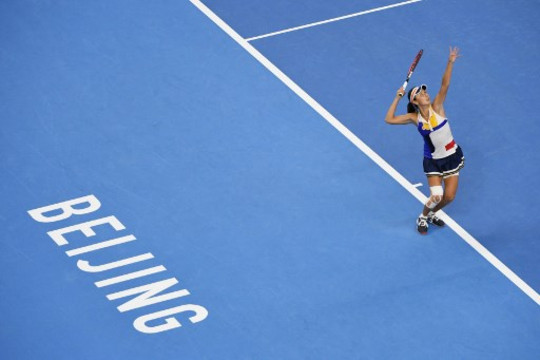On November 22, the U.S.-headquartered Cable News Network (CNN) said its live feed was cut in China during a segment about Peng’s allegations of sexual assault and subsequent disappearance. The segment showed the broadcaster's anchor crossing to an international correspondent when the feed to China diverted to coloured bars with a notice reading, “No signal. Please Stand by.”
Elsewhere in China, news reports and social media posts about Peng have been heavily censored by the authorities amid growing concerns about the athlete’s well-being and whereabouts. Access to foreign news programmes is often restricted in China except for diplomatic compounds, and certain neighbourhoods or hotels where foreigners are the mainstay.
On November 2, Peng said she was “forced” into sexual relations with China’s former Vice Premier Zhang Gaoli, one of the country’s most influential officials, on China’s Twitter-like social media platform Weibo.
Peng alleged that Zhang brought her to his house three years ago and coerced her into having ongoing sexual relations. "That afternoon I didn't give my consent and couldn't stop crying,” she added, though acknowledging she had no evidence against the former official.
Peng’s post was removed within minutes, as well as almost all content directly or indirectly referring to all involved. Peng then disappeared from the public eye, leading human rights groups, politicians, and other tennis stars to express concern and support for her.
Numerous videos, images and reports of Peng have surfaced since her disappearance, with Chinese state media and the International Olympic Committee posturing that the tennis star is “doing fine” and “relaxed.” These accounts were met with skepticism internationally.
The IFJ said: “While Chinese authorities have an extensive history of censoring unfavourable or sensitive information, this incident warrants special concern from the international community, as China readies to host the Beijing Winter Olympics in February and access for foreign press is stymied at every juncture. The IFJ demands that the Chinese government stop censoring information in the country and respects freedom of the press and the right to freedom of expression.”

